Climate chaos is coming—these careers will thrive in the aftermath.

It’s getting harder to pretend the world isn’t on fire—literally. Between megadroughts, heatwaves, floods, and food shortages, climate change is already reshaping how we live. But it’s also reshaping how we work. While some jobs disappear under automation and economic chaos, others are becoming more essential by the day. The climate economy isn’t just about solar panels and carbon offsets. It’s about managing disaster, adapting systems, and keeping communities functioning when everything else starts to break.
These roles aren’t just “green jobs.” They’re the ones that will stick around when the weather’s unpredictable, the water’s scarce, and the rules keep changing. Some are about healing. Some are about survival. And a few are just about cleaning up the mess. If you’re looking for stability in a very unstable world, these are the careers that are only going to get louder.
1. Climate resilience planners redesign cities before they break.

These folks aren’t waiting for disasters to happen—they’re trying to design them out of existence. Climate resilience planners work behind the scenes rethinking how cities are built, lived in, and protected.
In Copenhagen, planners turned Enghaveparken into a flood-ready park that can hold 22 million gallons of water, according to Attracta Mooney in the Financial Times. Moving housing out of wildfire zones or reworking building codes to handle 120-degree summers is also part of the job.
The work is complex and often invisible until it fails. But as floods get deeper and heatwaves last longer, these planners are becoming some of the most important people in the room. They balance science, policy, and a deep understanding of how systems fail under pressure. If you’ve got the brain for logistics and the patience to deal with bureaucracy, there’s serious staying power in this role.
2. Disaster response coordinators run toward the chaos while others freeze.
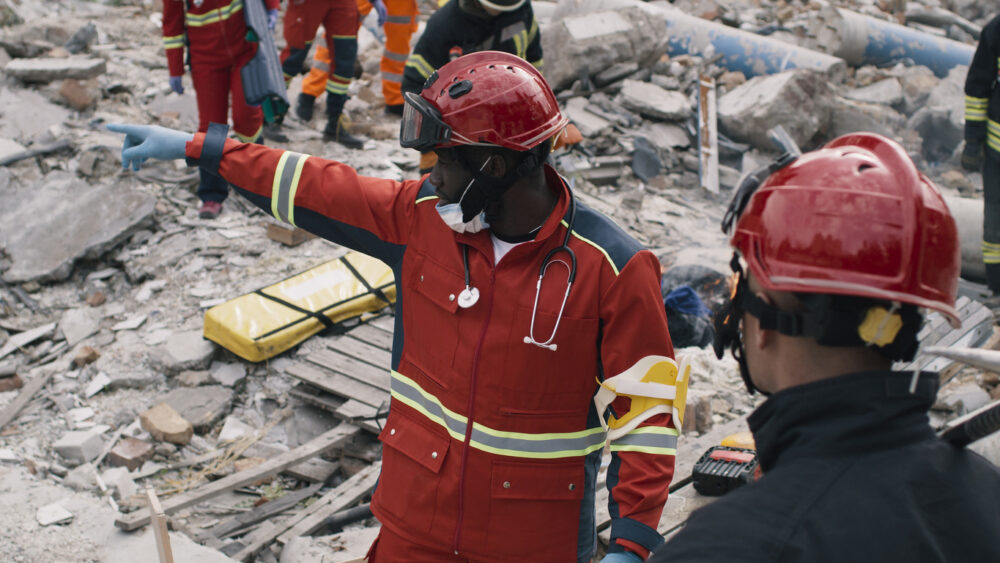
Tornadoes, wildfires, hurricanes—whatever’s coming, they’re already on it. Disaster response coordinators thrive in the mess, juggling logistics, resources, people, and plans when everything else is falling apart. Per the University of Arizona Global Campus, these professionals oversee crisis preparation and manage disaster response teams, ensuring compliance with safety procedures and regulations.
It’s not glamorous. It’s barely manageable. But it’s essential. These are the people who bring order to disaster zones and make sure no one’s left behind. You’ll find them in government offices, nonprofits, or emergency management agencies, often fueled by cold coffee and zero sleep. And as climate disasters get more frequent, overlapping, and intense, this job isn’t going anywhere. If your calm kicks in when everyone else panics, you might be wired for this kind of chaos.
3. Renewable energy techs flip the switch on the fossil fuel era.
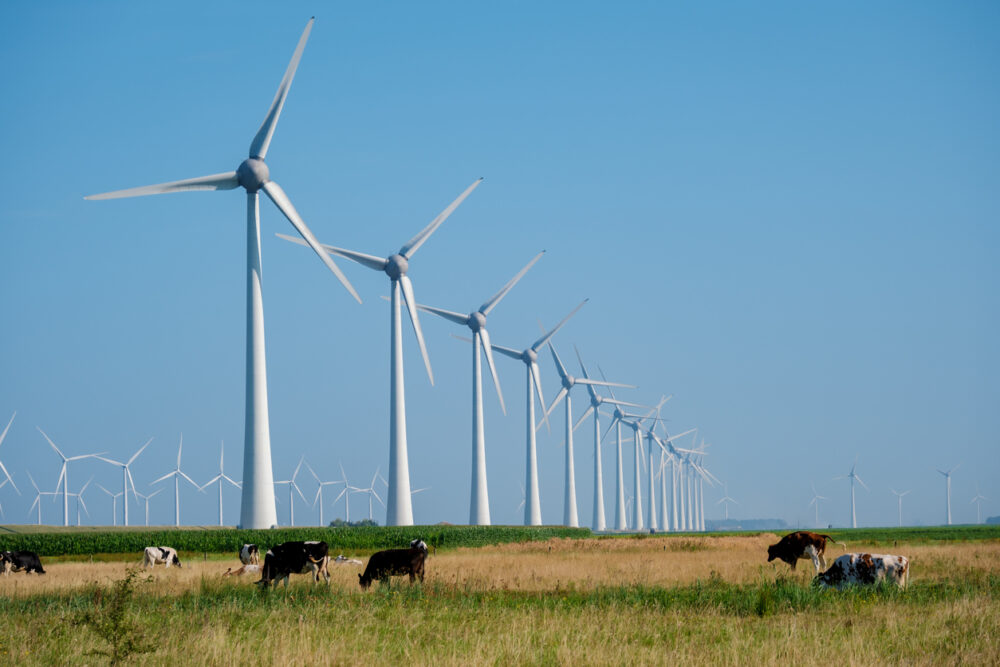
There’s a quiet army climbing turbines and wiring solar panels while politicians argue about gas prices. Renewable energy techs aren’t waiting for permission—they’re out there transforming the grid, one panel and tower at a time.
It’s physical work: dusty rooftops, high altitudes, blazing sun. Wind turbine technician jobs are expected to grow 60% by 2033, one of the fastest rates of any U.S. career, says the Bureau of Labor Statistics. And unlike many green jobs, this one doesn’t require a fancy degree. A good training program, some grit, and a willingness to get your hands dirty go a long way.
These workers don’t just talk about change—they make it happen every single day. As fossil fuel infrastructure starts to crumble, the people keeping solar and wind running will become the new backbone of energy systems everywhere.
4. Water engineers fight to keep taps from going dry.
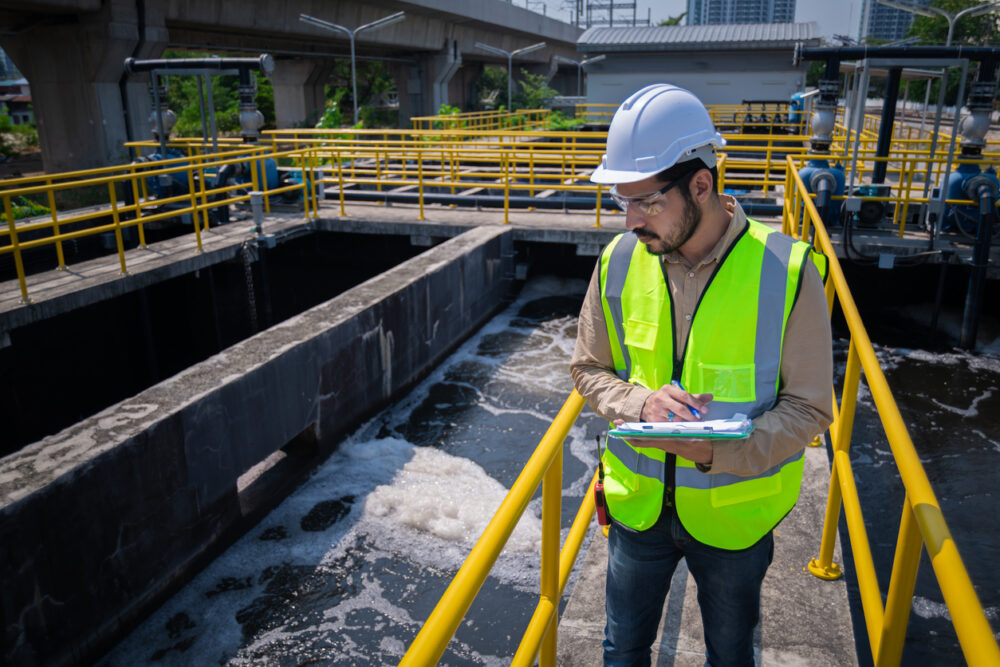
You only really notice how fragile the system is when your faucet stops working. Water engineers live in that fragility every day. They’re dealing with drought, outdated infrastructure, busted pipes, toxic runoff, and—more and more—panic from the public.
The work ranges from high-tech solutions like leak detection systems to emergency fixes in communities where wells are running dry. And as the U.S. water crisis deepens, these engineers aren’t just fixing problems—they’re reinventing how we think about water access altogether. It’s technical, yes, but it’s also incredibly human. Every system they repair or redesign means someone gets to shower, flush, or cook without fear. If you’re looking for a job that matters every single day, this one doesn’t get more real.
5. Environmental lawyers drag polluters into the courtroom.

While companies dump toxins into rivers and torch through emissions limits, environmental lawyers are out here saying, “Actually, no.” They file lawsuits, block permits, and dig through legal loopholes to hold the powerful accountable.
This isn’t corporate law. It’s gritty, often slow-moving work that requires stamina and a high tolerance for red tape. But the stakes are enormous—land, water, air, and lives are all on the line. Some attorneys go after giant oil firms, while others defend communities poisoned by lead or pushed out by pipeline projects.
Their clients aren’t always flashy, but their wins are huge. With environmental laws constantly under attack, these lawyers are becoming one of the last real lines of defense between people and collapse.
6. Climate therapists help people stay grounded in a collapsing world.

Therapists are used to hearing about personal grief, relationship drama, maybe the occasional existential crisis. But now they’re seeing something else: clients completely overwhelmed by the planet falling apart. It’s not irrational—it’s a deeply human reaction to a very real threat.
These therapists specialize in helping people stay emotionally present without falling into despair. That might mean helping a teenager channel their climate rage, or working with a parent who feels paralyzed about bringing a kid into this world. It’s not about offering false hope—it’s about helping people stay functional in the face of collapse. As climate anxiety becomes more widespread, this kind of care is no longer niche. It’s necessary. Mental health is climate resilience, and these professionals are building emotional lifeboats for the storm ahead.
7. Urban farmers grow food where supermarkets fail.

In neighborhoods where grocery chains pulled out years ago, a quiet food revolution is taking root. Urban farmers are turning sidewalks, backyards, rooftops, and vacant lots into lush, productive growing spaces. They’re not waiting on policy—they’re planting solutions one raised bed at a time. These growers know how to make things work with limited space, unpredictable weather, and stretched resources. It’s more than just fresh produce—it’s about resilience, food justice, and building systems that can survive supply chain breakdowns.
As climate change keeps throwing curveballs at industrial agriculture, the hyperlocal approach starts to look like the smarter one. Community gardens, co-ops, and rooftop farms are stepping in where traditional models are failing. This isn’t just about eating healthier. It’s about reclaiming control in a system that leaves too many people hungry.
8. Solar sales reps cash in on a growing energy revolution.

Solar used to be a niche upgrade. Now it’s a booming business—and the people selling it are making serious money. Sales reps are helping homeowners understand their options, unlock incentives, and ditch bloated utility bills. It’s not just about panels—it’s about giving people control over their energy.
This role blends persuasion, technical understanding, and grit. Some reps go door to door. Others work remotely. Either way, the pitch is getting easier: power bills are rising, and solar has never been more accessible.
As government programs expand and the grid gets shakier, more people are ready to make the switch—they just need someone to guide them through the process. For those who can handle rejection and explain tech without sounding like a robot, this job delivers both impact and income.
9. Energy auditors uncover the leaks no one talks about.
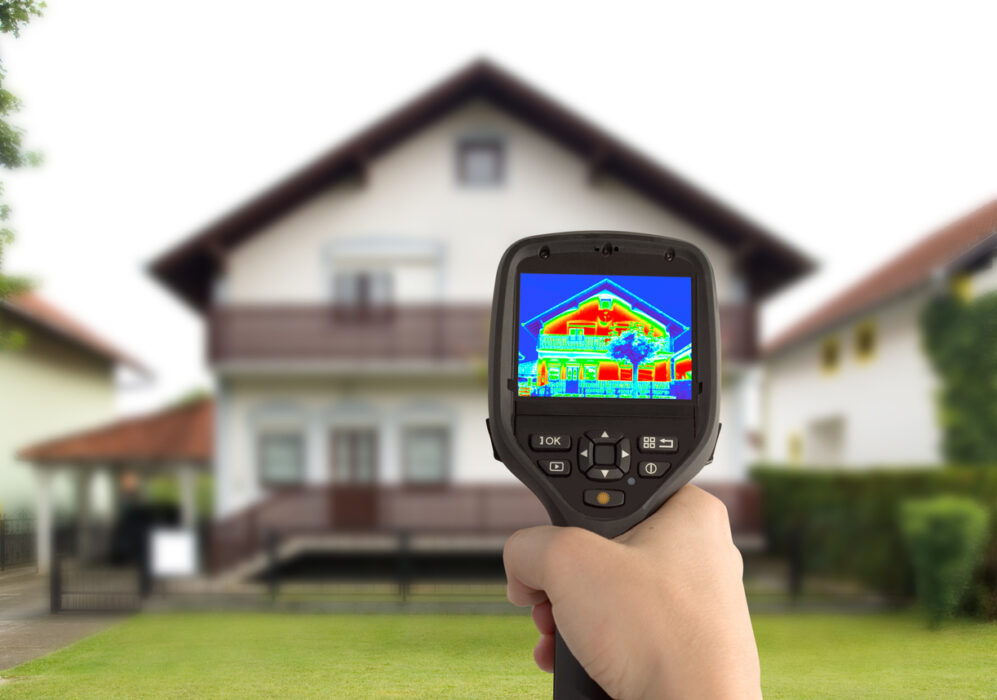
Before installing fancy new tech, there’s a simpler step that often gets skipped: finding out where energy is already being wasted. That’s where energy auditors come in. They walk through homes, schools, and businesses, identifying drafts, outdated systems, and small changes that make a big difference.
Armed with infrared cameras and a sharp eye, they uncover the hidden flaws that drive up power bills and emissions. Their fixes are low-cost and high-impact, which is exactly what more cities are looking for. As building codes evolve and energy efficiency becomes a bigger priority, these low-profile professionals are suddenly in high demand. It’s not a flashy job, but it’s one of the most direct ways to shrink a carbon footprint—and it saves people money in the process.
10. HVAC techs keep people alive during deadly heatwaves.

The work isn’t glamorous, but it’s life-saving. HVAC technicians are the ones climbing onto rooftops, crawling through attics, and sweating it out so others don’t have to. As heatwaves grow longer and more lethal, functioning air conditioning has gone from a comfort to a survival tool.
These techs aren’t just fixing broken units—they’re keeping vulnerable people safe in dangerous temperatures. The job requires serious grit, technical skill, and a stomach for extreme conditions. Still, it’s one of the most secure trades out there. Demand keeps rising, especially in regions where the heat is breaking records. If you’re the type who prefers action over desk work and wants a job with real-world impact, this one’s not going anywhere.
11. Waste workers clean up after climate chaos.
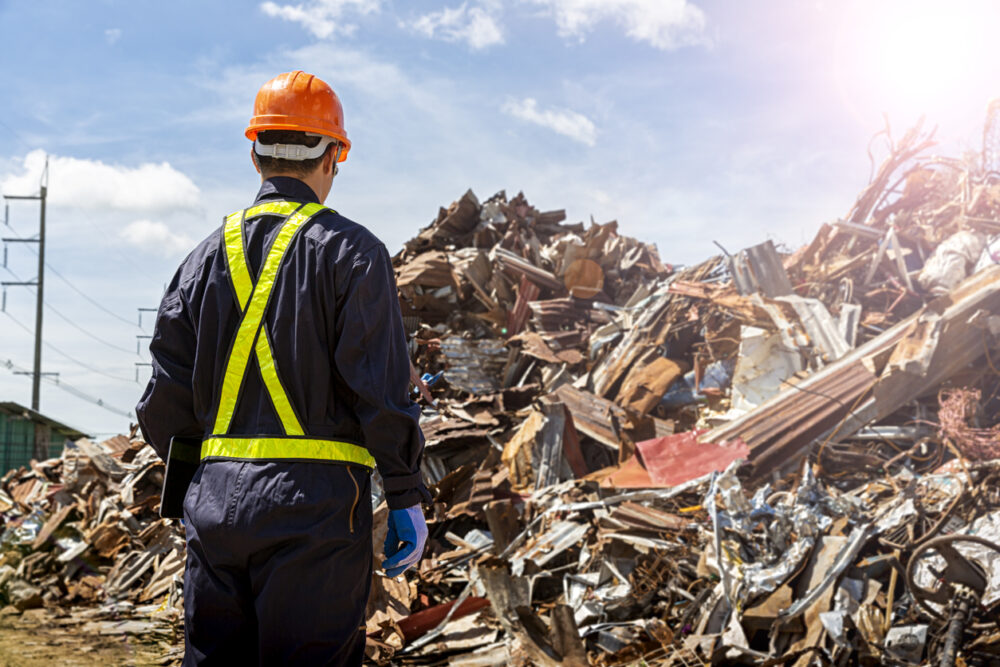
Hurricanes, wildfires, and floods leave more behind than damaged homes—they leave debris, toxins, and literal tons of trash. Waste workers step into the aftermath, clearing roads, sorting out hazards, and restoring some sense of order.
This isn’t just cleanup—it’s critical infrastructure work. Without these crews, disaster recovery grinds to a halt and health risks skyrocket. The job is intense, physical, and often dangerous, but it’s also essential. Waste management is already a huge industry, and climate-fueled disasters are only adding pressure. These workers don’t get much spotlight, but their hands are on the frontlines of climate survival. When the storm passes, they’re the ones putting the pieces back together.
12. Public transit operators move people when driving makes no sense.

Cities can’t survive without reliable ways to move people, especially as car culture starts to crumble under climate pressure. Public transit operators are the ones keeping buses rolling, trains running, and entire communities connected—no matter what chaos hits the road. They don’t just reduce emissions.
They make cities livable for people who can’t or don’t want to drive. More cities are investing in transit, upgrading fleets, and expanding routes as traffic worsens and gas gets more expensive. Behind the scenes, operators are powering that shift. It’s a job that comes with real responsibility, steady pay, and the kind of daily impact that’s easy to overlook—until you realize how many lives depend on it.
13. Climate communicators cut through the noise and make people care.

Science alone doesn’t change minds—stories do. Climate communicators take dense data, chaotic headlines, and terrifying forecasts and turn them into something people can actually feel. Whether it’s through podcasts, social media, film, or public speaking, they bridge the gap between knowledge and action.
This isn’t about sugarcoating—it’s about clarity. In a world drowning in distractions and doomscrolling, communicators offer context, urgency, and sometimes even hope. The job demands creativity, empathy, and a deep understanding of what makes people tune in—or shut down. With climate issues only getting more complex, the ability to make them make sense might be one of the most powerful tools we have.